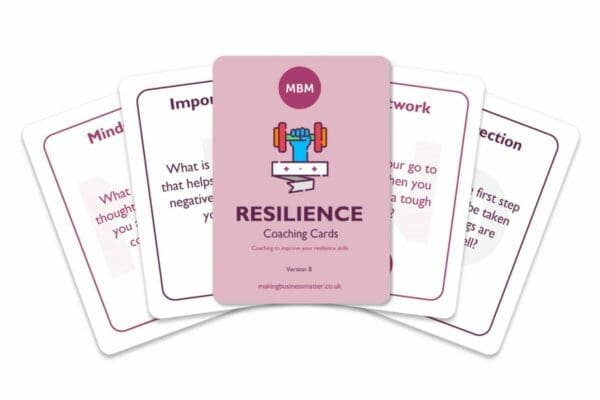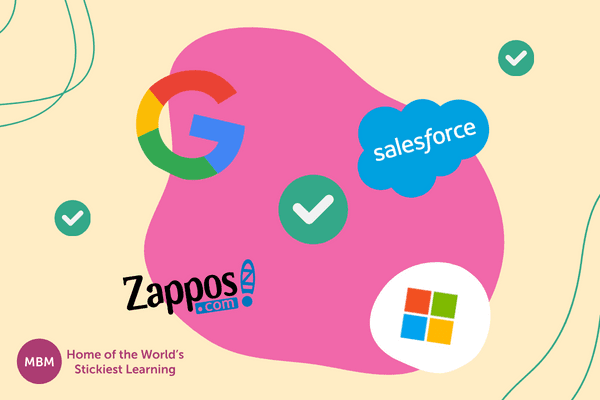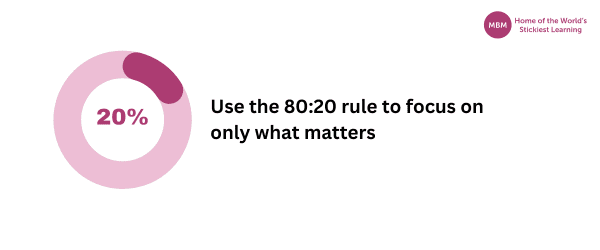The Unsung Hero Who Drives Success
In the bustling world of business, amid the ceaseless whirlwind of innovation, entrepreneurship, and strategy, there exists an often-overlooked, yet steadfast force that silently fuels progress and achievement – the hard worker person. They are the unsung heroes, the backbone of organisations, and the driving force behind countless success stories.
Imagine a bustling startup’s late-night coder, relentlessly typing away lines of code to bring a new app to life. Picture a dedicated manager, leading by example, ensuring that the team’s projects meet deadlines and exceed expectations. Visualise an entrepreneur pouring their heart and soul into a venture, embracing sleepless nights and countless setbacks.
In every corner of the business world, some individuals embody the essence of hard work, determination, and resilience. They are the ones who refuse to settle for mediocrity, who push the boundaries of what’s possible, and who set an example for their peers.
So in this article, we’ll delve into the world of hardworking individuals and explore the traits that define them. We will also explore the impact of their dedication and the strategies to nurture and reward their diligence.
The Psychology of Hard Work: What Drives Some People to Excel

#1. Intrinsic Motivation and Goal Setting
The psychology of hard work delves into the inner drivers that push individuals to excel. Intrinsic motivation, which comes from within, plays a vital role. When people are intrinsically motivated, they engage in tasks because they find them personally rewarding or fulfilling. Setting clear, challenging goals can also be a powerful motivator. When individuals have a defined purpose and direction, they often channel their energy and efforts into achieving those objectives. This drives hard work and determination.
#2. The Role of Grit and Resilience
Grit, a term popularised by psychologist Angela Duckworth, represents a combination of passion and perseverance. It’s the ability to maintain a long-term focus on a particular goal and overcome obstacles along the way. Now resilience, on the other hand, involves bouncing back from setbacks and learning from failures. Together, these psychological traits not only drive hard work but also enable individuals to sustain their efforts over time. Understanding these psychological elements is crucial for both individuals and organisations.

>> Resilience Coaching Cards <<
Sticky Learning ® is 7 times more effective than 1-day training courses. Plus, you will get a Chain of Evidence proving your Return on Investment. Discover soft skills training that changes behaviours long term.

#3. The Importance of Identifying Hardworking Employees
In the competitive landscape of modern business, identifying and nurturing hardworking employees is paramount. Note that these individuals are the driving force behind an organisation’s growth and success. But what exactly makes someone a hardworking employee? It’s not merely about clocking in extra hours or tirelessly completing tasks. It’s a unique combination of traits and behaviours that set these individuals apart.
#4. Reliability and Consistency
One of the hallmarks of a hardworking employee is their unwavering reliability and consistency. They are the ones you can count on to meet deadlines and deliver quality results time and time again. Regardless of their challenges, they maintain a high level of performance, ensuring that their work remains dependable.
#5. Proactive Attitude and Initiative
Hardworking individuals don’t wait for tasks to be handed to them. In fact, they proactively seek out opportunities to contribute and improve. Their initiative is a catalyst for innovation and progress within the workplace. Whether identifying operational inefficiencies, proposing new ideas, or volunteering for challenging assignments, they are driven by a desire to make a positive impact and drive the company forward.
#6. Perseverance in the Face of Challenges
Resilience and perseverance are other key traits that define hardworking employees. They don’t shy away from adversity but see it as an opportunity to learn and grow. When confronted with obstacles or setbacks, they remain undaunted, often putting in extra effort to overcome hurdles. Furthermore, their ability to weather the storm and emerge stronger is not only inspirational but also invaluable in helping the organisation navigate turbulent times.
These are just a few of the traits that make hardworking employees a priceless asset in any business setting. In the following sections, we’ll delve deeper into how these traits impact career success and the broader organisation, providing insights on how to identify, motivate, and cultivate these individuals within your own company.
Attention: Subscribe through LinkedIn to know when we publish a new article.
The Impact of Hard Work on Career Success

1. The Unquestionable Link Between Hard Work and Career Success
In the realm of career development, there exists an undeniable and profound connection between hard work and achieving significant success. Hardworking individuals tend to stand out in the professional world, not merely because of their dedication but because of the tangible outcomes they produce. So whether you’re an employee looking to climb the corporate ladder or an entrepreneur seeking to build your business empire, the role of hard work cannot be underestimated.
2. Hard Work as a Catalyst for Skill Development
Hard work catalyses continuous skill development. Individuals who invest time and effort into perfecting their craft, acquiring new knowledge, and honing their skills are more likely to excel in their careers. This commitment to self-improvement not only makes them better at what they do but also opens doors to new opportunities and challenges that can propel their careers forward.
3. Earning Recognition and Advancement
One of the most direct benefits of hard work in a professional setting is its recognition. In fact, diligent employees often find themselves on the radar of upper management. Their consistency, dedication, and ability to exceed expectations make them prime candidates for promotions, salary raises, and career advancements. In addition to personal and financial rewards, this recognition can lead to increased job satisfaction and a sense of accomplishment.
4. Building a Reputation and a Personal Brand
Hardworking individuals have the advantage of building strong professional reputations and personal brands. They become known for their reliability, competence, and commitment to excellence. Over time, this reputation not only helps them secure better job opportunities but can also lead to professional networks and connections that further fuel their career success. In essence, hard work becomes a cornerstone in constructing a lasting and influential professional identity.
The Power of Recognition and Rewards

In the world of business, recognising and rewarding hardworking employees is a practice that not only boosts morale but also drives motivation and productivity. For instance, Google, known for its innovative culture, implements “Peer Bonuses” where employees can nominate colleagues for outstanding contributions. These nominations are often accompanied by monetary rewards, fostering a culture of appreciation and encouraging hard work.
Google’s “20% Time” policy, which allowed employees to spend a fifth of their workweek on personal projects, not only recognised the hard work of employees but also led to innovations such as Gmail, Google Maps, and AdSense, illustrating how acknowledging dedication can result in groundbreaking products.
-
Incentives That Inspire Excellence
Many successful businesses utilise performance-based incentives to motivate their workforce. Salesforce, a customer relationship management software leader, employs an innovative incentive program known as “V2MOM” (Vision, Values, Methods, Obstacles, and Measures). This program encourages employees to create their own V2MOM, aligning their personal goals with the company’s mission.
By doing so, Salesforce not only recognises and rewards hard work but also reinforces the importance of shared values and objectives. This alignment fosters a sense of purpose and ensures that hardworking employees feel a deep connection to the company’s vision.
-
The Role of Promotion and Advancement
Promotions and career advancements are powerful motivators for hardworking employees, as they represent the culmination of their dedication and commitment. Satya Nadella’s journey to becoming the CEO of Microsoft is a prime example. He began his career at Microsoft as a young engineer in 1992 and steadily advanced through the ranks.
Nadella’s promotion to CEO in 2014 was not only a recognition of his hard work but also an embodiment of Microsoft’s culture of rewarding excellence. His story serves as a beacon of inspiration for hardworking employees, illustrating how dedication can lead to the highest leadership positions in a global tech giant.
-
Cultivating a Culture of Appreciation
Appreciation is a cornerstone of any successful organisation’s culture. Zappos, the online shoe and clothing retailer, is renowned for its outstanding customer service and employee-centric culture. Zappos encourages peer-to-peer recognition through a program called “Zollar Awards.” Employees can award their colleagues with a special currency, reinforcing a culture of appreciation and camaraderie.
By embracing this practice, Zappos not only rewards hard work but also cultivates a work environment where employees feel valued and appreciated for their dedication. This culture of appreciation is a significant contributor to Zappos’ success and its reputation for exceptional customer service.
Balancing Hard Work and Work-Life Integration

-
The Challenge of Balancing Hard Work and Life
Balancing the demands of a successful career with a fulfilling personal life can be one of the most significant challenges faced by hardworking individuals. Striving for professional excellence often comes with long hours, tight deadlines, and a constant drive to achieve more. However, it’s crucial to recognise that achieving a balance between hard work and personal well-being is not just about maintaining one’s sanity but also enhancing overall productivity and creativity.
-
A Lesson from Jack Ma’s ‘669’ Work Philosophy
Jack Ma, the co-founder of Alibaba, is an example of a successful entrepreneur who emphasises the importance of work-life balance. Ma introduced the concept of ‘996’ (working from 9 a.m. to 9 p.m., six days a week) in the tech industry. While it initially gained attention, he later revised it to ‘669’ (working from 9 a.m. to 9 p.m., six days a week, for a short period). This change acknowledged the need for employees to have time for family, hobbies, and personal life. Ma’s experience teaches us that even in high-pressure industries, work-life balance should be a priority.
-
Remote Work and Flexibility
The rise of remote work and flexible scheduling has created opportunities for employees to better balance their professional and personal lives. Consequently, companies like Buffer, a social media management platform, have embraced the remote work model, allowing their employees to work from anywhere.
This approach acknowledges that when employees have the flexibility to manage their work and personal commitments, they tend to be happier and more productive. It’s a prime example of how forward-thinking companies can support their hardworking employees while achieving excellent results.
-
Mindfulness and Time Management
Balancing hard work and personal life often requires mindfulness and effective time management. It’s about setting boundaries, prioritising tasks, and making time for relaxation and self-care. Tim Ferriss, author of “The 4-Hour Workweek,” suggests that rather than working longer hours, we should focus on working more efficiently and effectively. By adopting this mindset and applying strategies like the “Pareto Principle” (80/20 rule) to identify high-impact tasks, individuals can optimise their time and create space for personal pursuits.

Cultivating a Culture of Hard Work in Your Organisation
1. The Foundation of Organisational Success
Cultivating a culture of hard work within your organisation is the cornerstone of achieving long-term success. It’s about instilling a collective mindset that values dedication, resilience, and going the extra mile to achieve goals. When this culture takes root, it becomes a driving force that propels the organisation forward, fuels innovation, and fosters a sense of collective purpose.
2. Setting Clear Expectations
To establish a culture of hard work, it’s essential to set clear expectations for employees. First and foremost, make sure your team understands the company’s vision, mission, and the role each individual plays in achieving these objectives. Furthermore, clearly defined goals, performance metrics, and regular communication help employees know what is expected of them, ensuring alignment with the organisation’s values and work ethic.
3. Leading by Example
Leaders play a pivotal role in cultivating a culture of hard work. They should embody the traits and behaviours they wish to instil in their teams. When leaders lead by example, demonstrating dedication, a strong work ethic, and a commitment to excellence, they set the standard for the entire organisation. This not only motivates employees but also creates a culture where hard work is a shared value.
4. Providing Support and Recognition
In a culture of hard work, it’s essential to provide support and recognise the efforts of employees. This can include mentoring, professional development opportunities, and celebrating achievements, both big and small. When employees feel supported and appreciated, they are more likely to invest their energy and dedication in their work. Recognising and rewarding hard work reinforces the culture and encourages others to follow suit.
Cultivating a culture of hard work is a long-term endeavour, but the benefits are substantial. It leads to a more motivated and engaged workforce, drives innovation, and ultimately contributes to the organisation’s success. By setting clear expectations, leading by example, and providing support and recognition, you can create an environment where hard work is not just a requirement but a shared value embraced by everyone in the organisation.
Overcoming Challenges and Burnout for Hard Workers

-
The Perils of Overworking
Hardworking individuals often tread a fine line between dedication and burnout. The desire to excel can lead to putting in excessive hours and taking on an overwhelming workload. While hard work is admirable, ignoring the signs of burnout can have detrimental effects on one’s physical and mental health, as well as overall productivity.
-
Recognising the Signs of Burnout
It’s crucial to be able to recognise the signs of burnout in oneself and others. These signs may include persistent fatigue, reduced motivation, diminished creativity, and increased stress levels. Ignoring these indicators can lead to a downward spiral that affects not only an individual’s well-being but also their work performance.
-
Strategies for Preventing Burnout
Preventing burnout among hardworking individuals requires a proactive approach. This includes setting healthy boundaries, managing workload effectively, and making time for self-care. Recognising the value of breaks, leisure activities, and stress management techniques can help individuals regain balance in their lives and continue to deliver high-quality work without compromising their well-being.
-
The Role of Support Systems
Support systems, both within and outside the workplace, play a significant role in helping hardworking individuals overcome challenges and avoid burnout. Employers can provide resources and programs that support mental and physical health, while friends and family can offer valuable emotional support. Additionally, maintaining open communication about the challenges of balancing hard work and well-being can help individuals find the necessary guidance and support to thrive in their personal and professional lives.
Conclusion
In conclusion, the essence of hard work in the business world goes far beyond simply putting in extra hours. It’s about embodying a set of traits, behaviours, and values that drive individuals and organisations toward success. By recognising and rewarding hard work, maintaining a work-life balance, cultivating a culture of diligence, and understanding the psychology behind dedication, both individuals and businesses can tap into the remarkable power of hard work, achieving their goals while fostering a culture of excellence and innovation. All in all, hard work remains a timeless and invaluable asset on the journey to success in the ever-evolving world of business.
Engage with us on LinkedIn.




